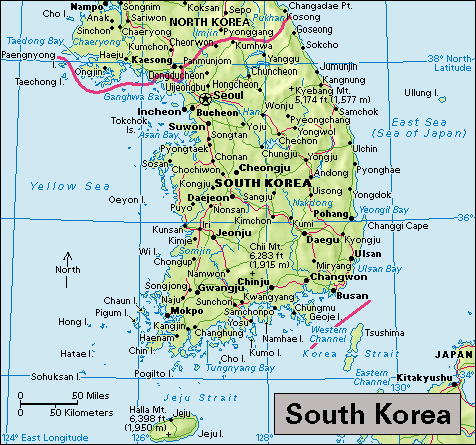Incheon, << ihn chon >>, is a major industrial city in northwestern South Korea and one of the nation’s largest ports. The city is also called Inchon. The municipality of Incheon has a population of 2,945,454. A municipality may include rural areas as well as the urban center. Incheon lies on the Yellow Sea, about 20 miles (32 kilometers) southwest of Seoul.

Incheon’s industries include fishing, shipping, and the manufacture of chemicals, iron, steel, and textiles. Incheon is linked to Seoul by a railroad, a subway system, and roads. Incheon International Airport began operating in 2001.
In ancient times, Incheon was a small fishing village. Incheon developed into a major port after foreign nations forced Korea to open the city and other port cities to international trade in the 1880’s. In 1950, during the Korean War, United States troops made a surprise landing at Incheon. After the landing, United States forces turned back North Korean troops who had invaded South Korea (see Korean War (The Incheon landing)). Incheon began to develop into a major industrial center in the late 1960’s. Hundreds of factories went into operation in and around the city. Incheon’s population soared after the industrial boom began. In 2003, South Korea’s government created the Incheon Free Economic Zone to develop the city as a center of international business and industry.
